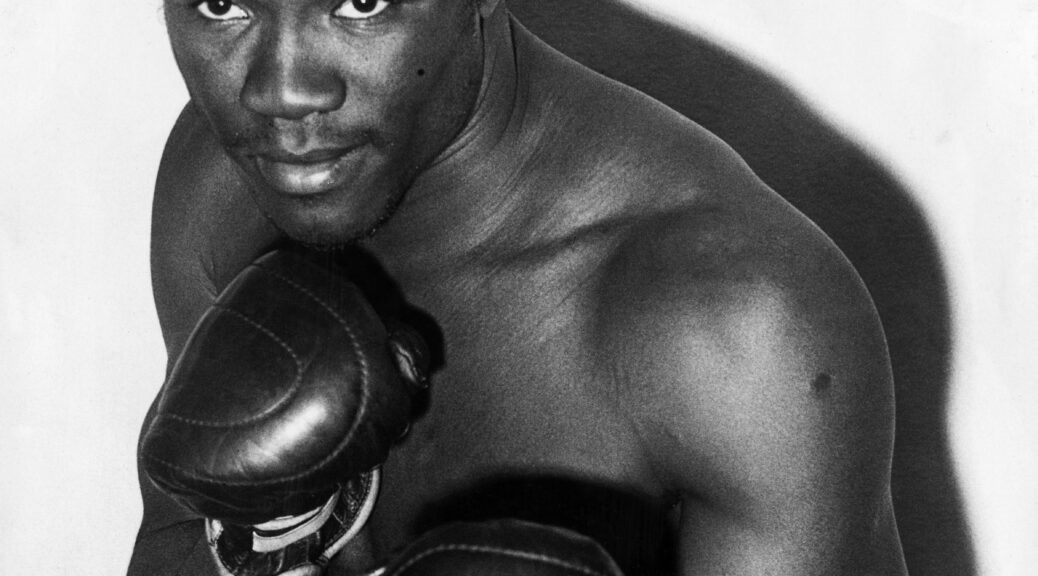EMILE Alphonse GRIFFITH was a professional boxer from the U.S. Virgin Islands, born on this date, who became a World Champion in the welterweight, junior middleweight and middleweight classes. His best-known contest was a 1962 title match with Benny Paret. At the weigh-in, Paret infuriated Griffith, a bisexual man, by touching his buttocks and making a homophobic slur. Griffith won the bout by knockout; Paret never recovered consciousness and died in the hospital 10 days later.
In 1963 and 1964, Griffith was voted Fighter of the Year by The Ring magazine and the Boxing Writers Association of America. In 2002, he was listed #33 on Ring Magazine’s list of 80 greatest fighters of the past 80 years. Griffith currently ranks #127 in BoxRec’s ranking of the greatest pound for pound boxers of all time. He was inducted into the International Boxing Hall of Fame in the inaugural class of 1990.
Griffith and Paret’s third fight, which was nationally televised by ABC, occurred on March 24, 1962, at Madison Square Garden. Griffith had been incensed by an anti-gay slur directed at him by Paret during the weigh-in. Paret touched Griffith’s buttocks and whispered into his opponent’s ear “maricón, maricón“, Spanish slang for “faggot”. Griffith had worked in a women’s hat factory and at the time designed hats. Griffith had to be restrained from attacking Paret on the spot. The media at the time either ignored the slur or used euphemisms such as “anti-man”. Griffith’s girlfriend asked him about the incident, saying, “I didn’t know about you being that way.”
In the sixth round Paret came close to stopping Griffith with a multi-punch combination, but Griffith was saved by the bell. After the sixth round Griffith’s trainer, Gil Clancy, later said he told him, “When you go inside I want you to keep punching until Paret holds you or the referee breaks you! But you keep punching until he does that!”.
In round 12 Griffith trapped Paret in a corner. Stunned after taking hard blows to the head, Paret stopped punching back and slumped to the side against the ropes, although his upper body was through them and partly out of the ring. Griffith held his opponent’s shoulder keeping him in position while using his free hand to hit Paret, who was no longer trying to protect himself by head movement or an arm guard. Griffith repeatedly landed right uppercuts on Paret’s head. Many watching were shocked, and there were calls from ringside for the referee to halt the bout; Norman Mailer said it was the hardest he had ever seen one man hit by another. Paret then lolled back and was hit with a combination.
At this point the referee stepped in, thereby awarding Griffith a win by technical knockout. Immediately after the intervention, Paret, who had remained on his feet throughout, slowly slid to the floor. He was carried from the ring on a stretcher and died ten days later in hospital without regaining consciousness.
Griffith went to the hospital where Paret was being treated and unsuccessfully attempted for several hours to gain entry to Paret’s room. Following that, he ran through the streets while being insulted by passersby. He would later receive hate mail from Paret supporters who were convinced Griffith intentionally killed Paret.
New York Governor Nelson Rockefeller created a seven-man commission to investigate the incident and the sport. Griffith reportedly felt guilt over Paret’s death and suffered nightmares about Paret for 40 years.
The fight, and the widespread publicity and criticism of boxing which accompanied it, became the basis of the 2005 documentary Ring of Fire: The Emile Griffith Story.
In 1992, Griffith was viciously beaten and almost killed on a New York City street after leaving a gay bar near the Port Authority Bus Terminal. He was in the hospital for four months after the assault. It was not clear if the violence was motivated by homophobia.
Griffith, who self-identified as bisexual, was quoted in Sports Illustrated as saying “I like men and women both. But I don’t like that word: homosexual, gay or faggot. I don’t know what I am. I love men and women the same, but if you ask me which is better … I like women.”
A long-time resident of Weehawken, New Jersey, Griffith died July 23, 2013, at a care facility in Hempstead, New York. In his final years, he required full-time care and suffered from dementia pugilistica. His adopted son, Luis Rodrigo Griffith, was his primary caregiver. He was buried in St. Michael’s Cemetery, Queens, New York City.
In May 2012 it was announced that trumpeter Terence Blanchard and playwright Michael Cristofer were working on the opera Champion, based on Griffith’s story. It premiered at Opera Theatre of St. Louis on June 15, 2013. A revised production of Champion will be presented during the 2022 Metropolitan Opera season, featuring conductor Yannick Nézet-Séguin with singers Ryan Speedo Green and Eric Owens.
